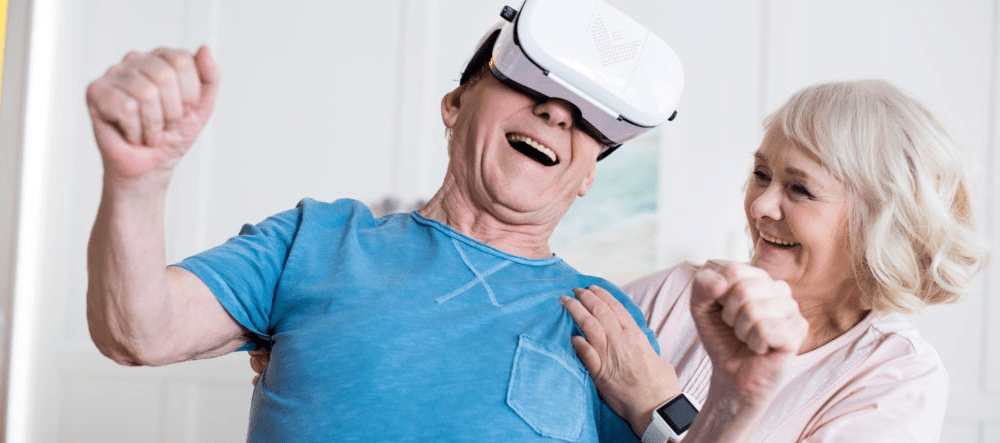Could Virtual Reality Help Calm Alzheimer’s Patients?

“Mornings were my mom’s ‘witching hours,’” says Trish, a caregiver to her mother—who lived with Alzheimer’s disease—for nearly seven years before she passed away. “My dad was normally very easygoing and unflappable, but during those moments, he didn’t know what to do. My mom was fearful of something but she couldn’t communicate it. It was really stressful for everyone.”
Trish’s experience caring for someone with Alzheimer’s disease isn’t all that uncommon. In fact the Alzheimer’s Association reports nearly 60 percent of Alzheimer’s and dementia caregivers experience emotional stress related to caregiving, and about 40 percent suffer from depression. Burnout is also a very real issue.
Virtual Calm—a new home care research study led by VHA Home HealthCare (VHA)—a not-for-profit Ontario-based agency—hopes to provides some “virtual” solace and support to these stressed out caregivers. The research study aims to uncover whether virtual reality (VR) videos can help quell rising distress or aggression in Alzheimer’s and dementia patients being cared for at home. Virtual Calm is funded by the Centre for Aging and Brain Health Innovation’s (C-ABHI) Spark program* and plans to begin working with caregivers and patients in the late fall.
“Distress and aggressive behaviour of someone with dementia or Alzheimer’s can really be a challenge for caregivers who are already emotionally and physically stretched,” notes Dr. Sandra McKay, VHA’s research manager and lead on the project. “Certain times of day or particular activities can trigger aggressiveness or distress in some home care clients (patients) with Alzheimer’s and dementia. We’re hoping to ‘distract’ clients before this happens with a relaxing virtual walk on the beach or a stroll through a tranquil forest and give caregivers a valuable tool to ease challenging behaviours.”
Other virtual reality video studies with patients who have dementia or Alzheimer’s have shown promising result in clinical settings. The Virtual Calm project will take this technology into the community—where many people with Alzheimer’s and dementia are cared for— to help clients with Alzheimer’s or dementia experience the calming effects of a peaceful “virtual journey” when they feel distress or agitation in the home.
